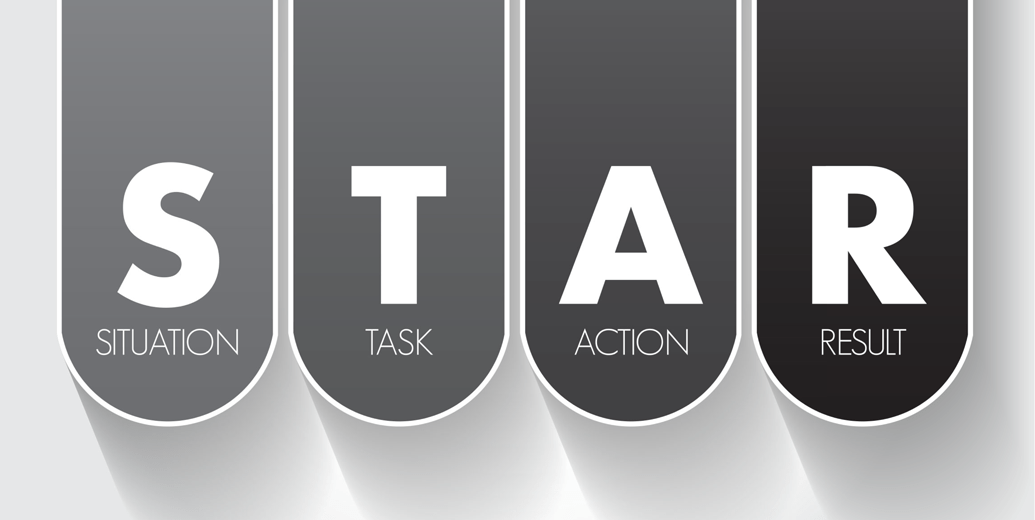Using the STAR methodology can be an effective way of answering competency-based interview questions, and from our experience using it to frame your answers in public service interviews is a must! The idea behind the STAR methodology is that you talk about a specific example, give a good amount of context, and then really focus on finishing off by showing that what you did achieved a really positive outcome. So let’s break it down:
STAR is an acronym for Situation, Task, Action and Result
Situation
Set the context by describing a relevant situation where you applied your skills/qualities and gained your experience. It is important that you describe a specific event or situation not a generalised description. The situation that you discuss should be from a previous professional position. This is about framing your example and giving the interviews the context of the situation – try to be as specific as possible.
Task
What was YOUR specific role / job / responsibility? Describe your responsibility in the situation and what goal were you working towards to achieve.
Action
What did you do and how did you do it? Describe the steps and actions you took to address the situation. Use “I” not “we” when describing actions and be conscious that you don’t describe what the team did, keep the focus on you.
Result
Outline the result that stemmed from the actions you took. It is important that you think about how the result relates to the job you are applying for. Don’t be shy, take credit for your work and ensure your answer contains a really positive result. Even if you are talking about a difficult situation, sometimes how you overcame adversity can be a great result!
An Example Question and Answer using the STAR Methodology in an interview
Question: Can you give an example of a time when you had to clarify the needs of a stakeholder, colleague or manager? (supports productive working relationships)
Situation
Currently I work in the Business Improvement Team and we work as part of a larger division which is geographically dispersed across a range of locations so we don’t see each other face-to-face.
Task
There was a time when I had to do quite a bit of work with one of the managers of one of the teams that works alongside our team. We had to work together on important emergency management issues, however this manager began frequently calling me to ask me to do tasks that were well outside the responsibility of my role.
Action
While I was initially happy to help it began to have an impact on my own work outputs and priorities. I came up with a strategy to manage the situation where, when the manager would ask me to do a task, I would tell them the other priorities that I had for the day, which gave them an understanding of my workload and the situation improved significantly without developing into a conflict. I also kept my supervisor in the loop.
Result
The outcome ended up being really positive all round, as it turned out the manager didn’t have a good understanding of my workload due to the remote working arrangements.
CBR Recruitment can provide guidance on how to use the STAR methodology to blitz your next job interview, so please give us a call on 02 6103 7000 or email: hello@cbrrecruitment.com.au
For an in-depth guide on “Competency-based Interviews” please refer to our blog Competency Based Interviewing – What is it and why use it?







